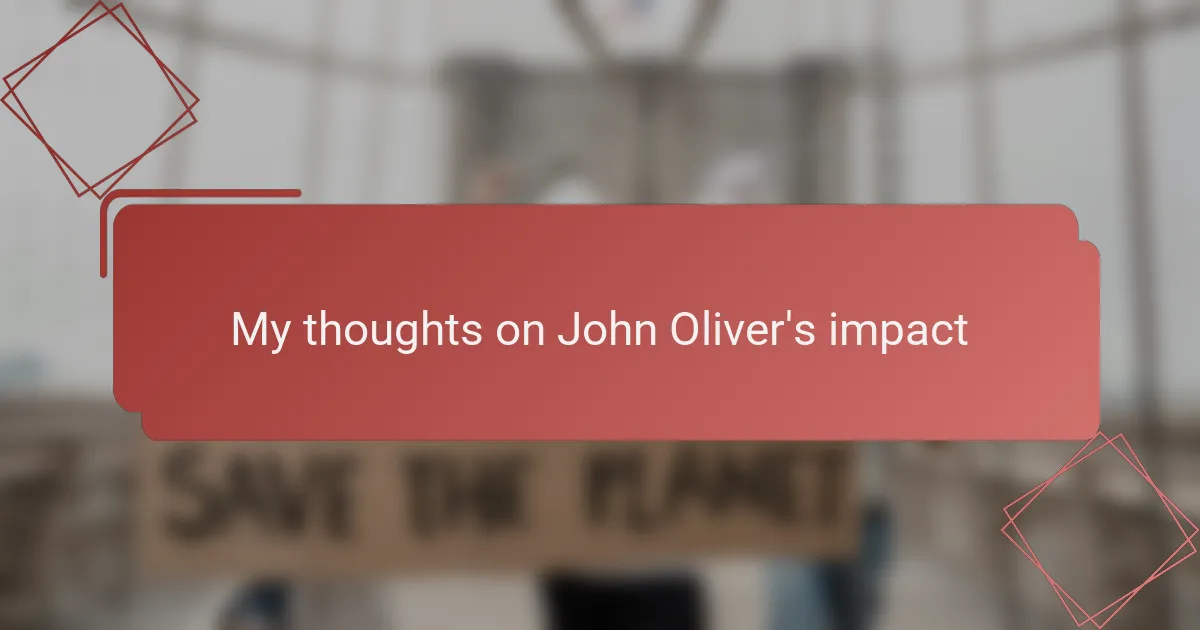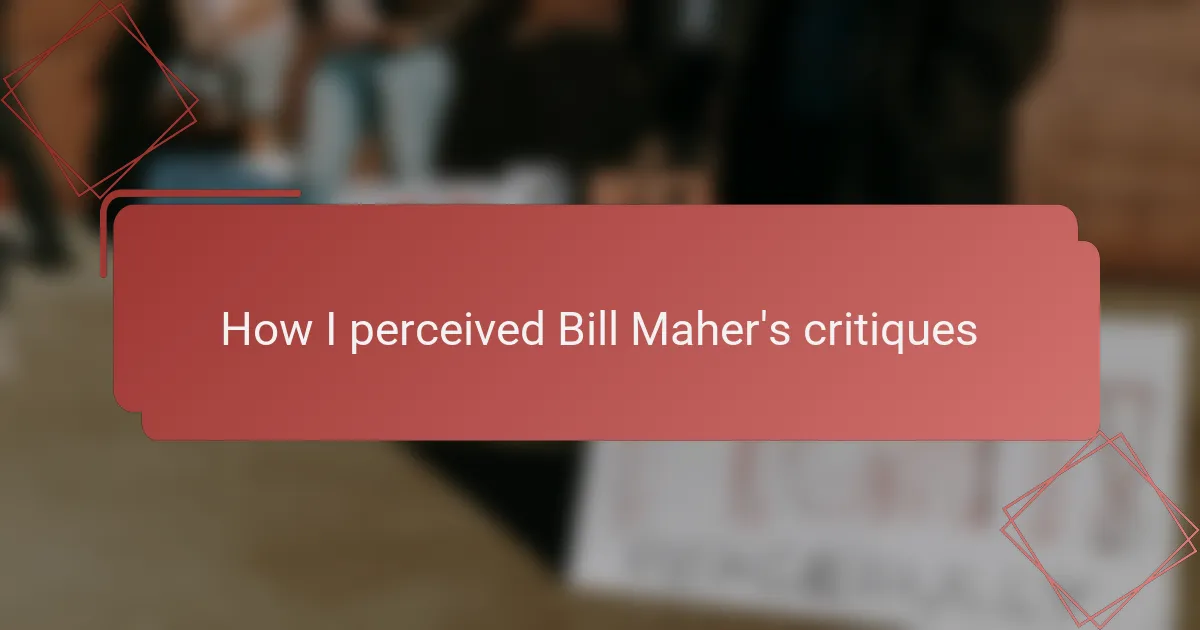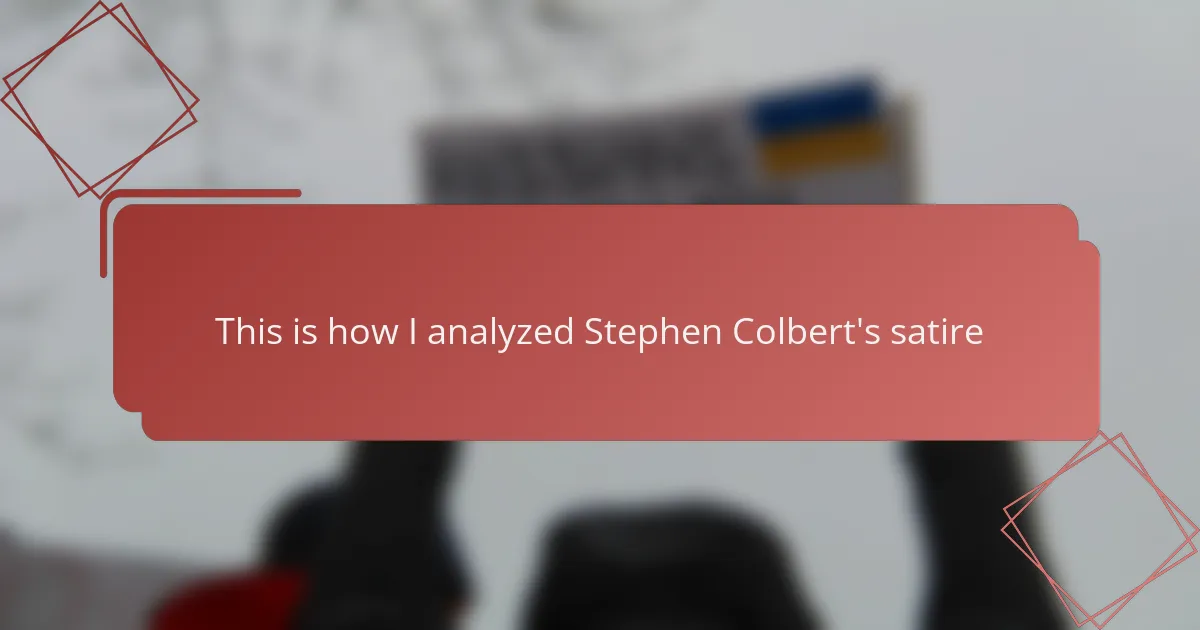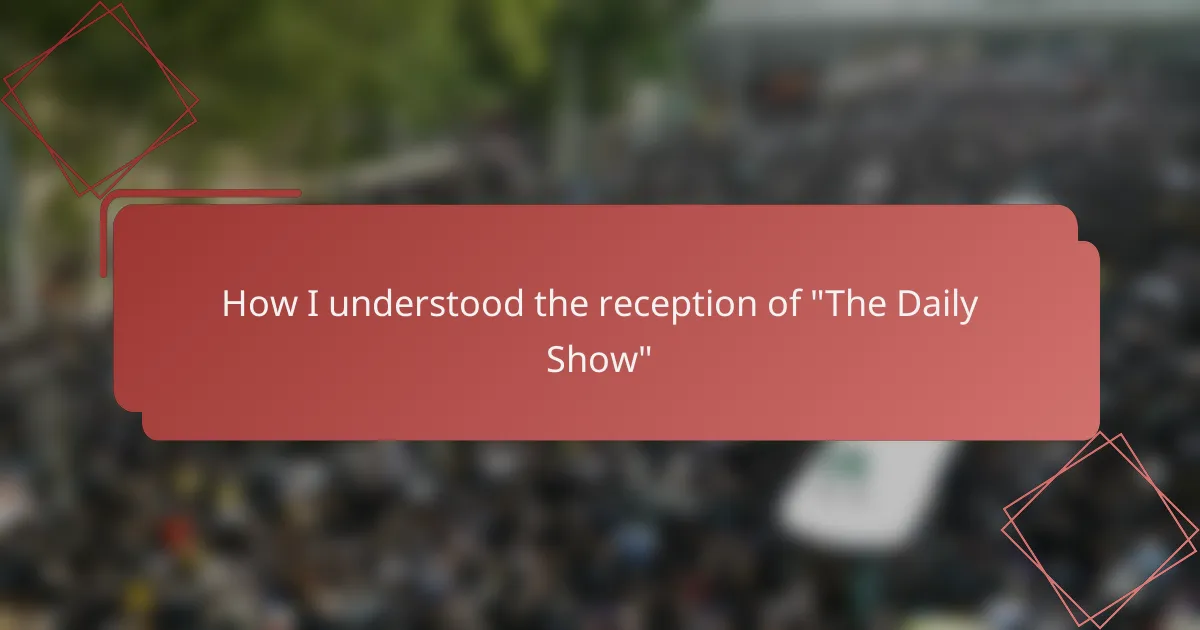Key takeaways
- Political satire simplifies complex issues, encourages critical thinking, and engages diverse audiences with humor.
- John Oliver’s career showcases impactful commentary, blending humor with thorough research to make politics accessible.
- His techniques, including exaggeration and visual aids, highlight absurdities while educating and empowering viewers.
- Oliver’s influence prompts traditional media to address overlooked topics, blurring the line between entertainment and activism.
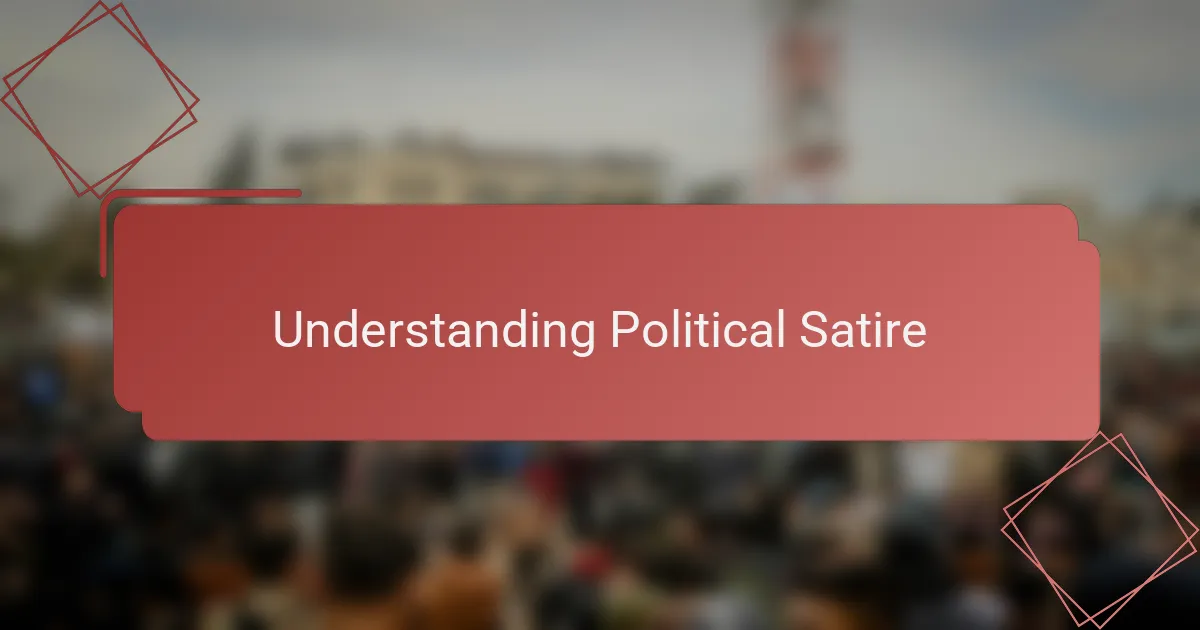
Understanding Political Satire
Political satire uses humor and irony to critique political events and figures, making complex issues more accessible and thought-provoking. From my experience, this approach not only entertains but also encourages audiences to question power structures and think critically about current affairs.
When I first encountered political satire, it felt like a breath of fresh air amidst the often dry and polarized news cycle. It’s a powerful tool that combines wit with a sharp social commentary, helping people engage with politics on a deeper level without feeling overwhelmed.
- Simplifies complex political issues through humor
- Encourages critical thinking and public discourse
- Holds those in power accountable by exposing hypocrisy
- Creates a shared cultural experience around current events
- Makes politics accessible and engaging for diverse audiences
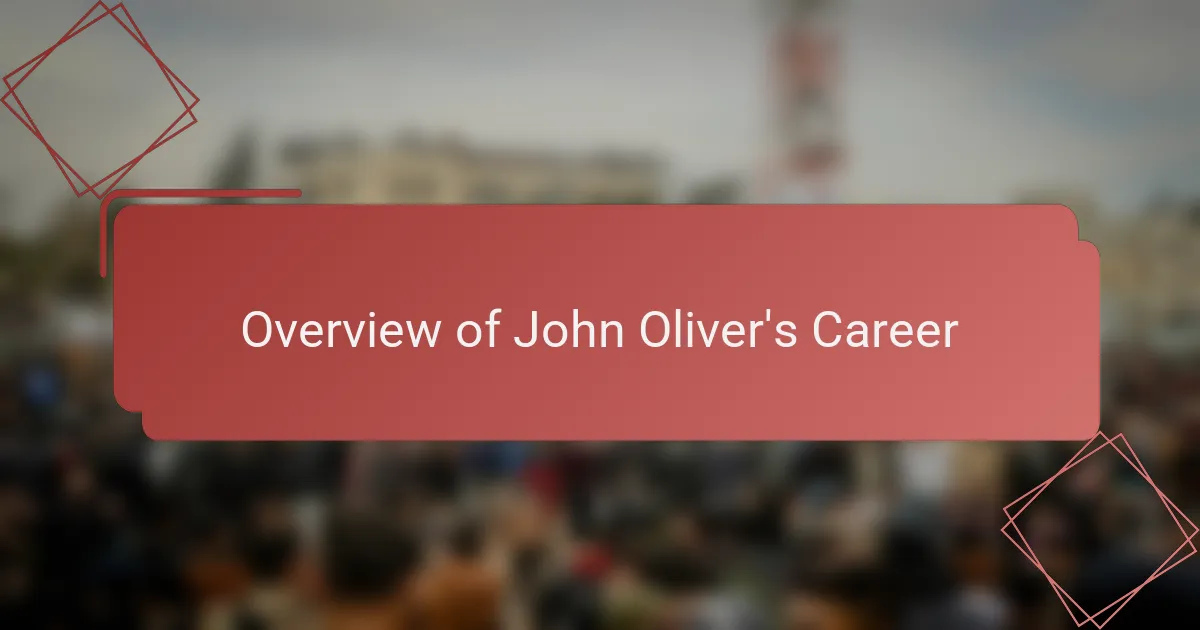
Overview of John Oliver’s Career
John Oliver’s journey in political satire has been nothing short of inspiring. Starting as a correspondent on “The Daily Show,” he quickly became known for his sharp wit and insightful commentary. Personally, I find his ability to break down complex political issues into digestible and entertaining segments incredibly effective in engaging audiences who might otherwise feel overwhelmed by news.
| Career Stage | Notable Contributions |
|---|---|
| Correspondent on The Daily Show | Developed a reputation for concise, humorous political commentary |
| Host of Last Week Tonight | Deep-dives into underreported issues with a mix of humor and thorough research |
| Public Advocate | Brings light to social and political topics, encouraging public discourse and awareness |
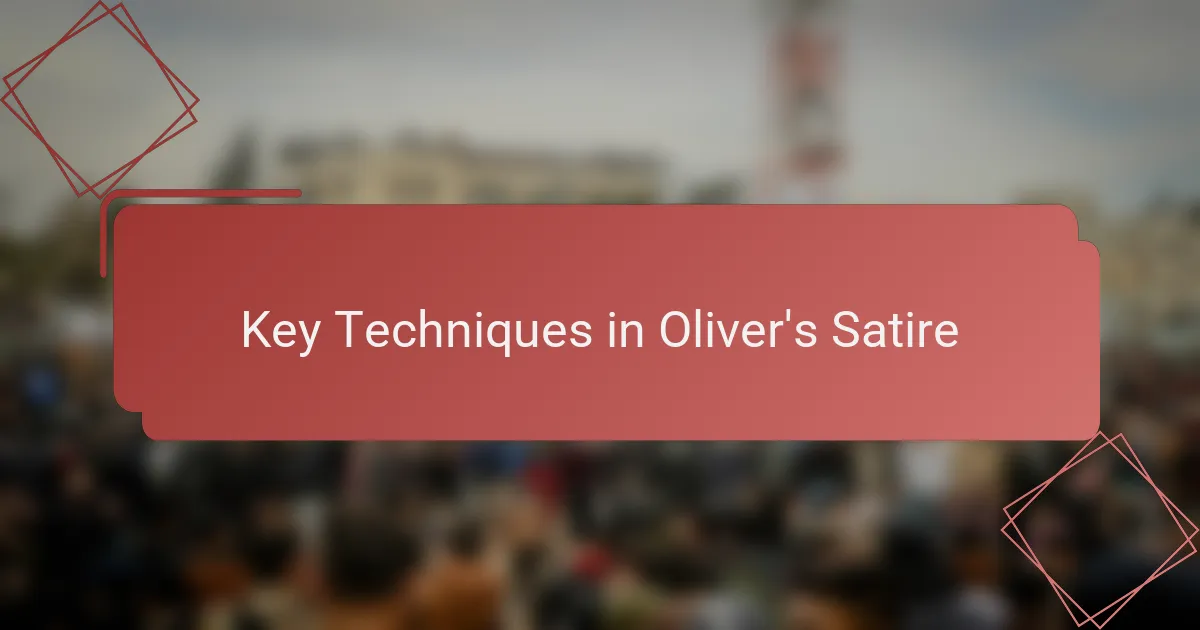
Key Techniques in Oliver’s Satire
John Oliver’s satire often hinges on thorough research combined with an accessible, witty delivery. He uses exaggeration not just for laughs but to spotlight absurd political realities, making complex issues feel relatable rather than overwhelming. From my experience watching his segments, his clever use of visual aids and recurring jokes keeps the audience engaged while driving home serious critiques.
| Technique | Purpose |
|---|---|
| Thorough Research | Ensures factual accuracy and depth, which builds credibility and trust with the audience. |
| Exaggeration | Highlights the absurdity of political situations, making criticism both humorous and memorable. |
| Visual Aids | Makes complex information easier to grasp and more engaging to the viewer. |
| Recurring Jokes | Creates familiarity and continuity, helping to connect different segments and ideas emotionally. |
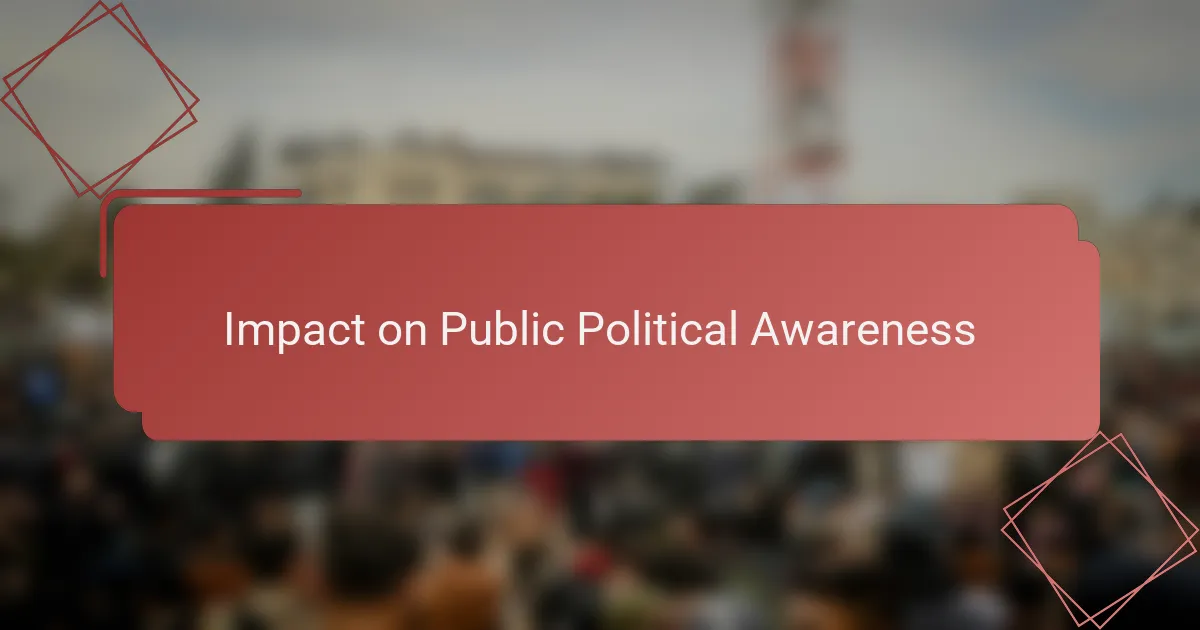
Impact on Public Political Awareness
John Oliver’s impact on public political awareness is something I’ve noticed firsthand. There have been countless moments where, after watching an episode of Last Week Tonight, I found myself actually caring more deeply about an issue I previously ignored. Have you ever felt that way—where humor suddenly made politics feel urgent and personal?
What strikes me most is how his deep dives unpack topics that often slip through the cracks of mainstream news. He doesn’t just summarize; he educates. This approach makes viewers question what they thought they knew and often sparks conversations in social settings, from dinner tables to online forums, broadening political awareness beyond traditional news consumers.
I also appreciate how Oliver’s work inspires a sense of empowerment. Instead of feeling helpless about complex political problems, his satire encourages viewers to engage, advocate, or at least be more informed. It’s this ability to mobilize awareness through laughter—without sacrificing seriousness—that I believe defines his unique contribution to political discourse today.
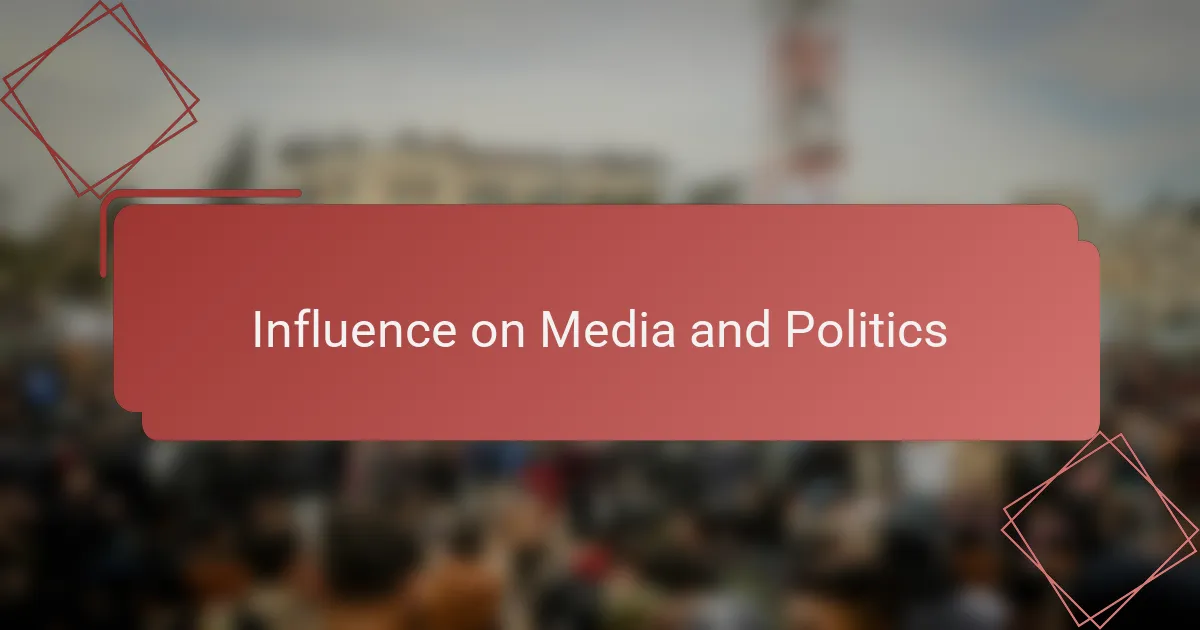
Influence on Media and Politics
John Oliver’s influence on both media and politics is something I find quite remarkable. Watching his show, I’ve noticed how he pushes traditional media boundaries, encouraging news outlets to tackle stories they might otherwise overlook. Have you ever seen a news cycle shift because of a satirical segment? Oliver’s ability to spotlight neglected issues often forces mainstream media to follow suit, changing the conversation in subtle but meaningful ways.
From my perspective, Oliver doesn’t just entertain; he holds power to account in a way that’s both accessible and impactful. I recall an episode that not only exposed political corruption but also led to real-world discussions and even policy debates. It’s rare for satire to have that kind of ripple effect, and it speaks to the persuasive power his platform holds.
What I find most compelling is how Oliver’s work blurs the line between comedy and activism. By wrapping complex political critique in humor, he makes serious topics less intimidating and more approachable. This strategy, in my experience, not only informs viewers but motivates them to care—and sometimes act—on issues they might have ignored. Isn’t that the kind of influence we hope political satire can achieve?
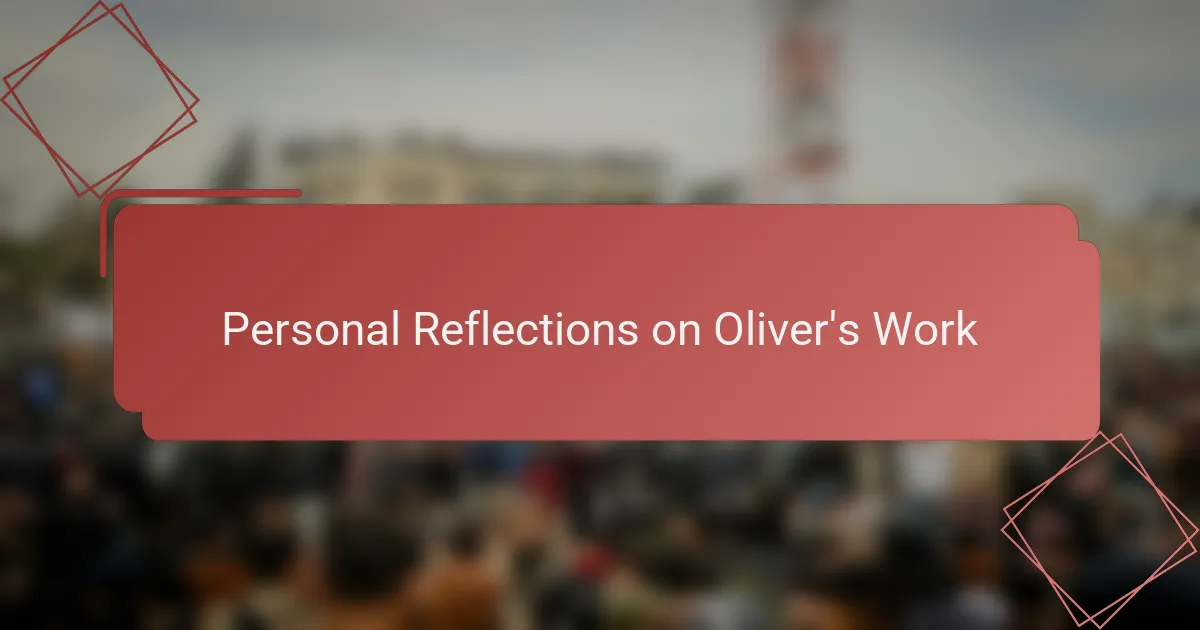
Personal Reflections on Oliver’s Work
John Oliver’s work has personally reshaped how I view political satire. His ability to blend humor with thoroughly researched content often leaves me both entertained and enlightened. I remember watching an episode where he dissected hidden complexities in healthcare policy; it sparked a deep curiosity in me to learn more rather than just skim headlines.
His approach feels like a masterclass in making hard topics accessible without oversimplifying them. That balance encourages me to think critically and discuss these issues with friends who might otherwise avoid political conversations. Here are a few elements I’ve found most impactful in his work:
- Meticulous research that grounds satire in facts
- Clear, relatable explanations of complex subjects
- Use of humor to disarm and engage viewers
- Willingness to hold powerful figures accountable
- Encouragement of civic awareness through entertainment
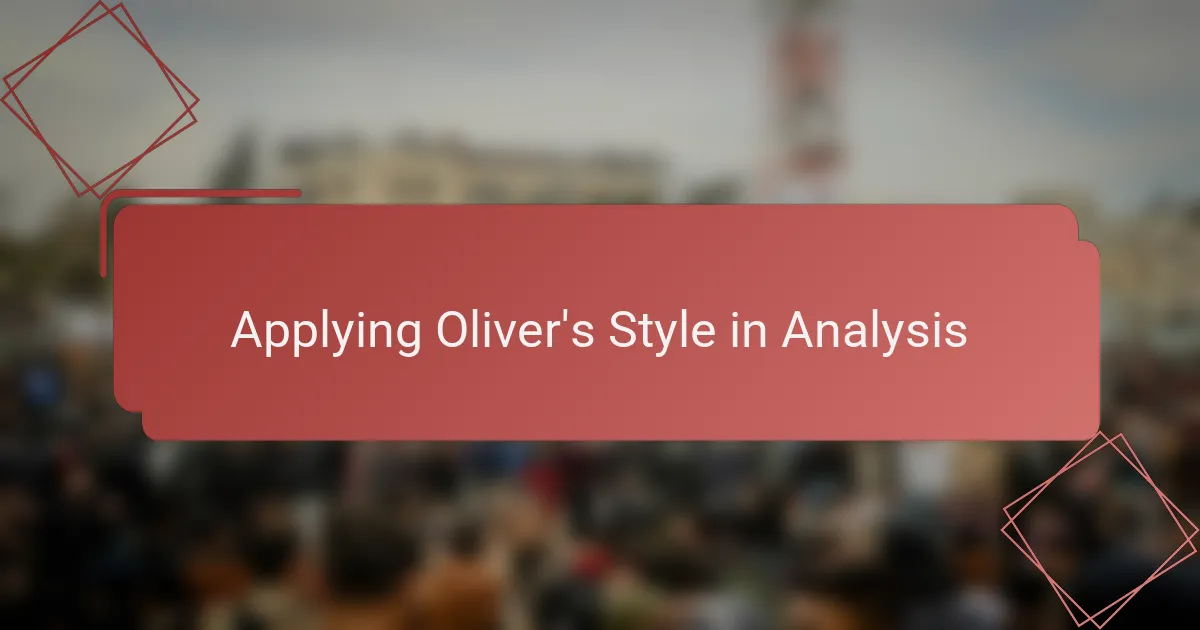
Applying Oliver’s Style in Analysis
Applying Oliver’s Style in Analysis really shows how blending humor with sharp critique can make complex political issues more approachable. From my experience, using his mix of wit and thorough research helps keep readers engaged rather than overwhelmed. It’s like he turns analysis into a conversation you want to keep having, not a lecture you want to shut off.
| Aspect | John Oliver’s Style |
|---|---|
| Tone | Sarcastic yet informative with a conversational edge |
| Approach | Deep research combined with humor to simplify complex topics |
| Engagement | Interactive, makes viewers feel part of the discussion |
| Emotion | Uses satire to provoke thought and sometimes outrage |
| Effectiveness | Balances education and entertainment, making political satire accessible |
